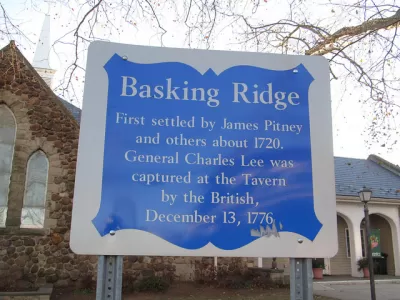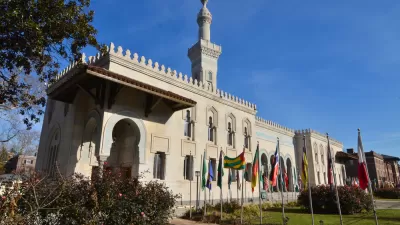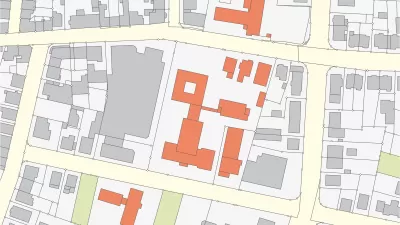A proposed mosque in Bernards Township will move forward, after the DOJ sued the town for using zoning ordinances to undermine Muslims' religious freedom.

"After five years, 39 public hearings, and two lawsuits, the Islamic Society of Basking Ridge in New Jersey will finally be able to build a new mosque," reports Emma Green in The Atlantic.
When it proposed the mosque in 2012, the Islamic Society became the target of explicitly Islamophobic treatment from community members and was met with prevarication from officials. The plan was finally rejected, ostensibly on the basis of parking.
The group sued the township—and so did the Department of Justice, arguing under the Religious Land Use and Institutionalized Persons Act, which Green explains "prohibits local communities from using vague ordinances and bureaucratic procedures to discriminate against religious groups." Now, though the township denies any wrongdoing, it has agreed to settle both cases, and the proposed mosque will move forward.
This case was a particularly nasty and controversial example of a local board discriminating against a religious group that wanted a place to worship. But while the Bernards Township case is distinctive, it’s in no way unique. Religious discrimination in the U.S. often happens in the most quotidian settings, including debates over zoning ordinances.
Over the last decade, opposition to new mosques swelled throughout the United States, and the DOJ has intervened with local planning boards multiple times. In March, Bayonne, NJ—just 30 miles from Bernards—rejected a proposed mosque and community center citing zoning concerns.
FULL STORY: A New Jersey Mosque Wins in a Religious-Discrimination Lawsuit—Over Parking Lots

Trump Administration Could Effectively End Housing Voucher Program
Federal officials are eyeing major cuts to the Section 8 program that helps millions of low-income households pay rent.

Planetizen Federal Action Tracker
A weekly monitor of how Trump’s orders and actions are impacting planners and planning in America.

Ken Jennings Launches Transit Web Series
The Jeopardy champ wants you to ride public transit.

Rebuilding Smarter: How LA County Is Guiding Fire-Ravaged Communities Toward Resilience
Los Angeles County is leading a coordinated effort to help fire-impacted communities rebuild with resilience by providing recovery resources, promoting fire-wise design, and aligning reconstruction with broader sustainability and climate goals.

When Borders Blur: Regional Collaboration in Action
As regional challenges outgrow city boundaries, “When Borders Blur” explores how cross-jurisdictional collaboration can drive smarter, more resilient urban planning, sharing real-world lessons from thriving partnerships across North America.

Philadelphia Is Expanding its Network of Roundabouts
Roundabouts are widely shown to decrease traffic speed, reduce congestion, and improve efficiency.
Urban Design for Planners 1: Software Tools
This six-course series explores essential urban design concepts using open source software and equips planners with the tools they need to participate fully in the urban design process.
Planning for Universal Design
Learn the tools for implementing Universal Design in planning regulations.
Ada County Highway District
Clanton & Associates, Inc.
Jessamine County Fiscal Court
Institute for Housing and Urban Development Studies (IHS)
City of Grandview
Harvard GSD Executive Education
Toledo-Lucas County Plan Commissions
Salt Lake City
NYU Wagner Graduate School of Public Service




























